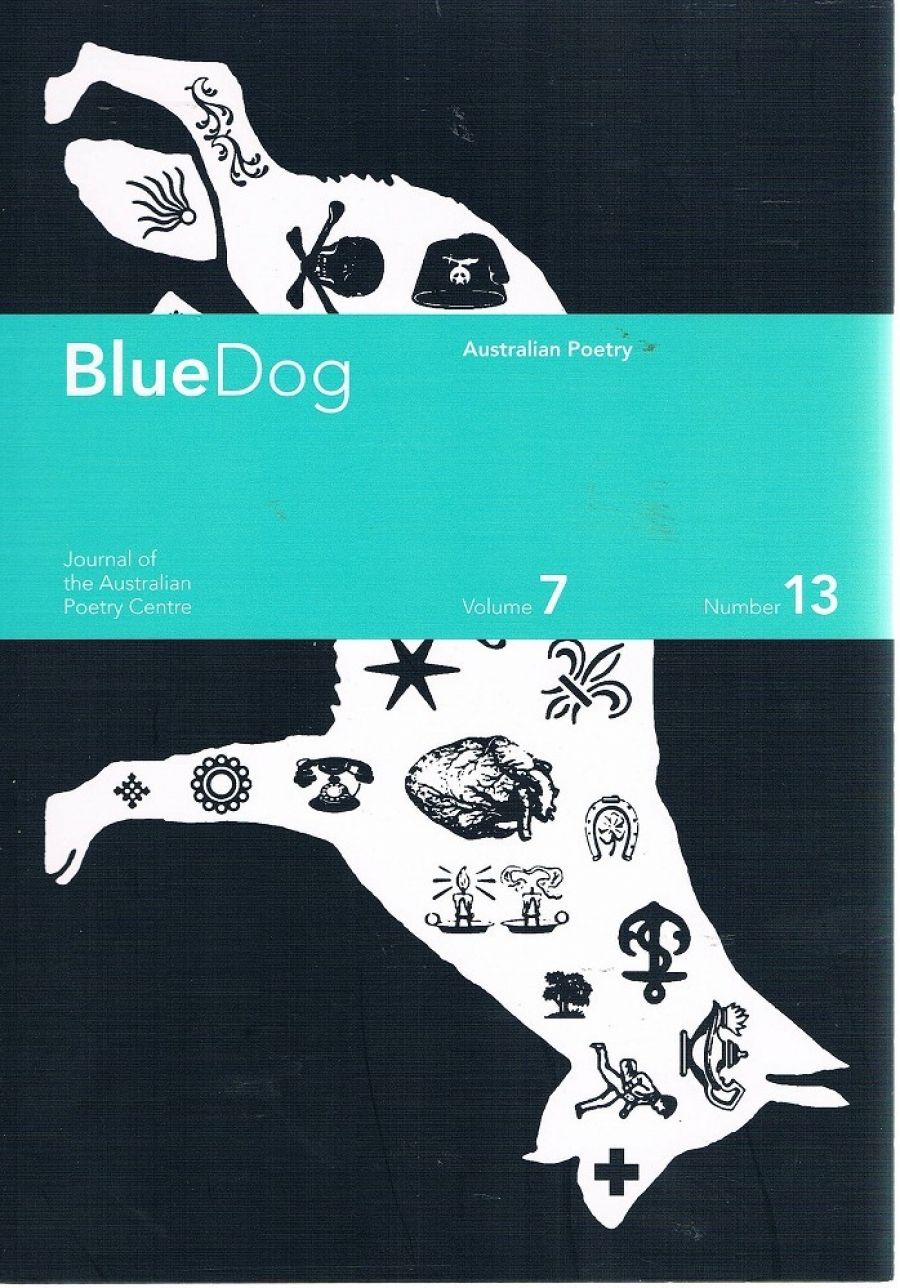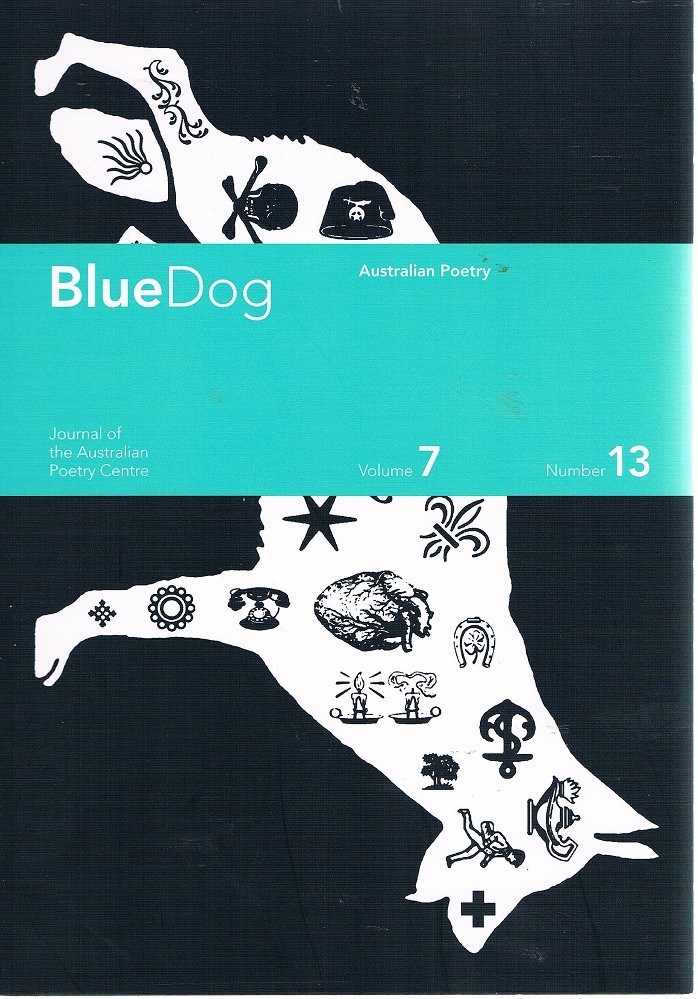
- Free Article: No
- Contents Category: Journal
- Review Article: Yes
- Online Only: No
- Custom Highlight Text:
Blue Dog, the Journal of the Australian Poetry Centre, has a democratic approach to Australian poetry. Submissions are judged anonymously by a team of editors from each state and territory. The journal, as the two reviews of small-press publications reveal, shows no preference for big names. The results, however, are mixed.
Highlights include Andy Jackson’s ‘Severance’, which provides a measured expression of nostalgia. The poem reflects on a childhood marked by sexual misadventure – ‘You and I were the first in our group to buy porn, / though it took us two attempts – we’d assumed Playboy / couldn’t cost much more than TV Week. Honestly, / it was the soft light palming pale curves / that drew us, not the shock of shallow gynaecology’ – and loss – ‘Years before, / our legs patterned with gum tree shadows, / we sat on either end of a bench, waiting for your mum / to come again to comfort you in your homesickness’.
- Book 1 Title: Blue Dog Vol. 7 No. 13
- Book 1 Biblio: Australian Poetry Centre, $12.95 pb, 66 pp
- Book 1 Cover Small (400 x 600):

- Book 1 Cover (800 x 1200):

Ian McBryde’s ‘Coming off Morphine’ is deliciously edgy. The pain numbed by drugs is portrayed as a corral of crazed stallions ‘pressed / together in a wave of manes, / edging forward, eyes / hollow, faces nostril-wide’. James Stuart’s ‘Huê’ is a striking, water-logged impression of Vietnam: ‘a woman on her scooter / with bright headlights / cut through the sooty veneer, / sliced her own reflection in two.’ Nathan Curnow’s study of anxiety as akin to haunting is worth mentioning, as is John Carey’s ‘Fidel’s Children’, a clever, entertaining list of Cuban characters which includes ‘The Mambo Queen, who once sang torch songs / for Lucky Luciano, working on a new ballad / that says in rough translation: “Sure, / there are fuck-ups but they’re our fuck-ups”.’
In his editorial, Grant Caldwell invites readers to ‘buy Blue Dog, read it, criticise it, argue about it’. The unevenness of the poetry should achieve that end.


Comments powered by CComment